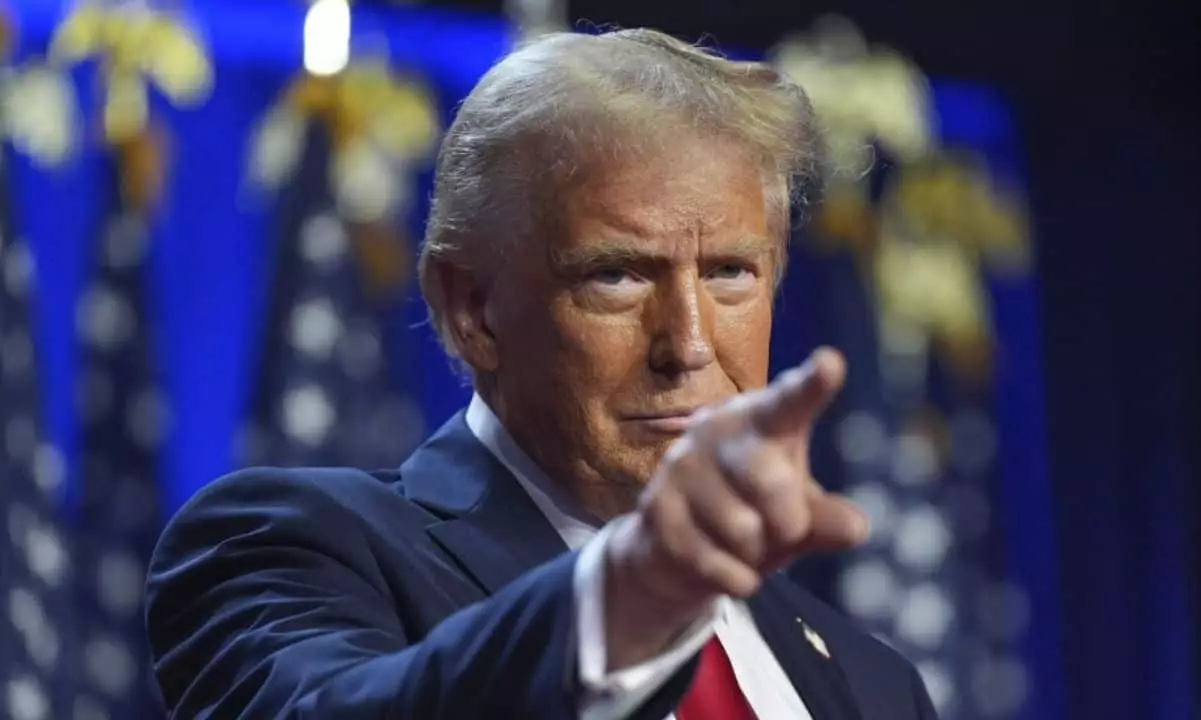The cryptocurrency arena has always been rife with speculation, and the recent saga involving the TRUMP coin serves as both a cautionary tale and an example of how volatility can wreak havoc in this digital domain. The narrative begins with a significant investment of 5 million USDC made by a cryptocurrency whale, initially optimistic about the potential of the TRUMP token following a glowing endorsement from the former President himself. The half-hearted optimism from Trump’s exuberant support, which echoed across social media platforms, nudged the price to a staggering $12.25 on the day of his endorsement.
However, what seemed like a goldmine soon morphed into a pitfall, culminating in a rapid sell-off that cost this whale over $207,000 in a matter of mere hours. This stark transformation from promise to loss encapsulates the capricious nature of investments prompted by celebrity endorsements, particularly in an unregulated market. The allure of quick gains often overshadows the inherent risks, and in this case, the impulsive buying frenzy quickly evaporated as the market corrected course.
Political Fallout and Regulatory Concerns
Beyond the financial ramifications lie deeper societal implications. The launch of meme coins like TRUMP not only stirred up market dynamics but also ignited a firestorm of political controversy. The suggestion that a former U.S. President could monetize his brand in such a fleeting and speculative manner raised eyebrows and prompted a backlash. The introduction of the MEME Act by Rep. Sam Liccardo reflects bipartisan concern regarding the ethical implications of senior officials engaging in cryptocurrency promotion and the potential exploitation of their influence.
The bill’s stipulations, aimed at compelling Trump and his family to repay any profits, evoke a significant question about accountability in a space that is often viewed as the Wild West of finance. Should we allow our political figures to dive into potentially exploitative ventures without oversight? The public’s skepticism towards the legitimacy of such currencies only heightens when those at the helm of politics engage in them, capitalizing on their names without delivering any substantive value to the cryptocurrency industry.
The SEC’s Stance on Meme Coins
Complicating the situation further, the Securities and Exchange Commission (SEC) has issued statements indicating that meme coins like TRUMP fall outside traditional securities regulations. This exclusion from federal oversight gives rise to an arena where speculative trading can thrive without guardrails. While the SEC views these coins as collectibles driven by online trends, the danger lies in the potential for average investors to be lured into a trap without the necessary tools to evaluate these digital assets properly.
The situation exemplifies a broader message that resonates in the investment community: not all that glitters is gold. The TRUMP coin’s rise and subsequent decline serve as a microcosm of the cryptocurrency market’s propensity for unpredictability. Investors must approach these opportunities with a blend of cautious optimism and critical scrutiny, especially when the allure of a high-profile endorsement clouds more rational investment strategies.
The dramatic fluctuations of such tokens should awaken a sense of vigilance regarding the intersection of finance, politics, and celebrity culture—a triangle that can just as swiftly enrich as it can impoverish.


Leave a Reply